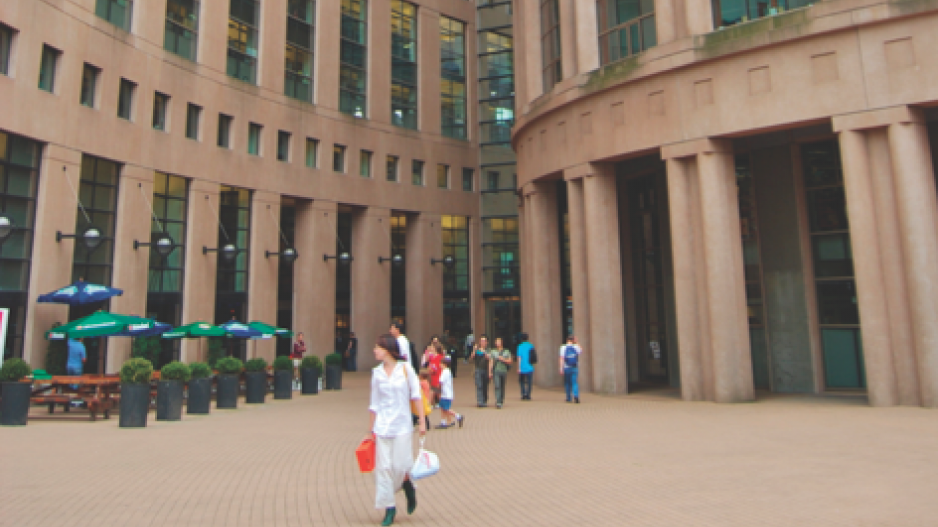Tax speculation
The province has dismissed the idea of taxing speculative property purchases, which, on the residential side, are concentrated in select areas rather than being a general problem. (Central 1 Credit Union found that flipping – resale of the same property within six to 12 months of first purchase – occurred with no more than 5% of Metro Vancouver property purchases earlier this year.)
However, that didn’t stop Richard Bullock, a Kelowna orchardist who was terminated as head of the province’s Agricultural Land Commission in May, from calling for a tax on speculators who don’t farm agricultural land.
“Use it, or tax the hell out of it,” Bullock said in response to a question regarding how to protect farm properties from speculation following a presentation he made to the Institute for Sustainable Food Systems at Kwantlen Polytechnic University in Richmond on July 28.
Those remarks included a critique of recent changes to the province’s Agricultural Land Commission Act, including a two-zone structure for the province’s Agricultural Land Reserve. The second zone, which largely applies to farm properties in the province’s Interior, is more flexible in allowing for alternative uses for protected properties.
“We’ve got to take the speculative value out of farmland,” Bullock said in his presentation at Kwantlen. “Some of the changes may have given hope to the speculators again. That’s my concern.”
Bullock said speculation often has its roots in people who misjudge how difficult it is to make a living farming; to make a decent return, they look to alternative uses. This may be all well and good so far as new streams of income support the main farming operation, but the strategy has its limits.
“Non-farm uses are wonderful until they become more important than the farm product that is produced on that land, and that’s where we’re getting into trouble in this province,” he said. “We cannot allow that to happen.”
Twenty years on
Back in May 2005, this space noted that scholar and philanthropist Yosef Wosk had pledged $250,000 through 2015 to establish a fund facilitating public access to exterior garden space atop the Vancouver Public Library and conversion of the interior areas to library use.
That item came to mind with the recent announcement that Ottawa – prior to the writ being dropped for October’s general election – was kicking in $500,000 to develop offices, a reading room and café on the library’s top two storeys, as well as facilitating access to the structure’s rooftop garden.
Rooftop access was sacrificed when the Moshe Safdie-designed library opened in 1995 to accommodate office leases to the province that helped finance construction.
Now, a $15 million renovation will honour Safdie’s original vision for the structure.
Federal and municipal funding will provide $9 million of the project budget, while the Vancouver Public Library Foundation will launch a campaign later this year to raise $6 million for the makeover plus an additional $5 million for other upgrades.
Construction will take approximately a year and complete in March 2018.
Giving without breaks
It’s high summer, and the piano tinkling at midnight outside your columnist’s residence is as good a reminder as any that place-making initiatives such as Keys to the Streets are in tune with the season.
This year, the Downtown Vancouver Business Improvement Association (DVBIA) is in on the act. DVBIA members furnish eight “perches” with tables and chairs during business hours for public enjoyment.
One is at Burrard and Drake, future site of Burrard Place by Pattison Group/Reliance Properties Ltd. But unlike the community gardens and dog runs on other redevelopment sites, this one generates no tax breaks for the developer. The temporary, business-hours-only nature of the initiative makes it a largely altruistic venture designed to animate an otherwise derelict space. •




